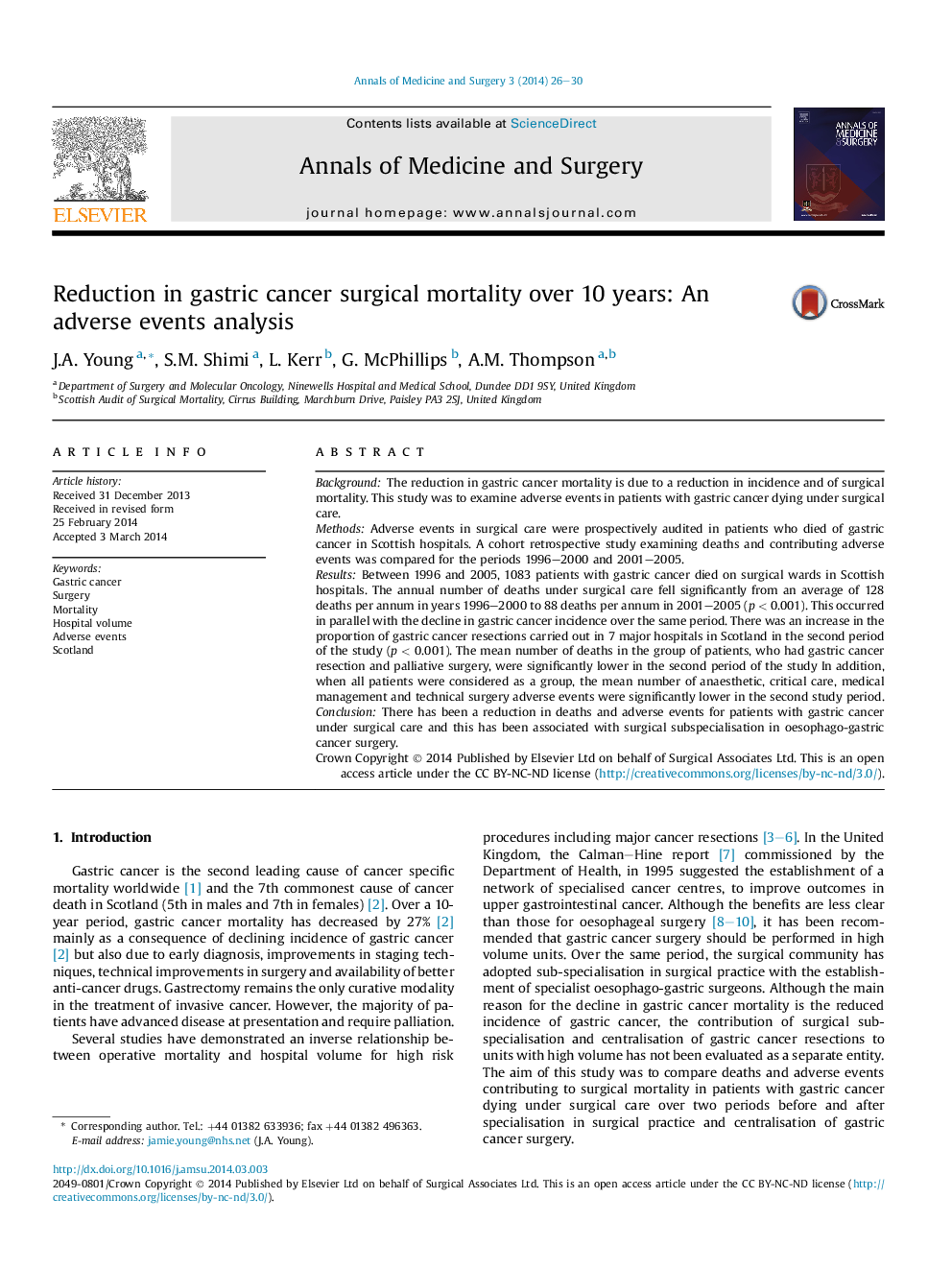| Article ID | Journal | Published Year | Pages | File Type |
|---|---|---|---|---|
| 4195552 | Annals of Medicine and Surgery | 2014 | 5 Pages |
BackgroundThe reduction in gastric cancer mortality is due to a reduction in incidence and of surgical mortality. This study was to examine adverse events in patients with gastric cancer dying under surgical care.MethodsAdverse events in surgical care were prospectively audited in patients who died of gastric cancer in Scottish hospitals. A cohort retrospective study examining deaths and contributing adverse events was compared for the periods 1996–2000 and 2001–2005.ResultsBetween 1996 and 2005, 1083 patients with gastric cancer died on surgical wards in Scottish hospitals. The annual number of deaths under surgical care fell significantly from an average of 128 deaths per annum in years 1996–2000 to 88 deaths per annum in 2001–2005 (p < 0.001). This occurred in parallel with the decline in gastric cancer incidence over the same period. There was an increase in the proportion of gastric cancer resections carried out in 7 major hospitals in Scotland in the second period of the study (p < 0.001). The mean number of deaths in the group of patients, who had gastric cancer resection and palliative surgery, were significantly lower in the second period of the study In addition, when all patients were considered as a group, the mean number of anaesthetic, critical care, medical management and technical surgery adverse events were significantly lower in the second study period.ConclusionThere has been a reduction in deaths and adverse events for patients with gastric cancer under surgical care and this has been associated with surgical subspecialisation in oesophago-gastric cancer surgery.
